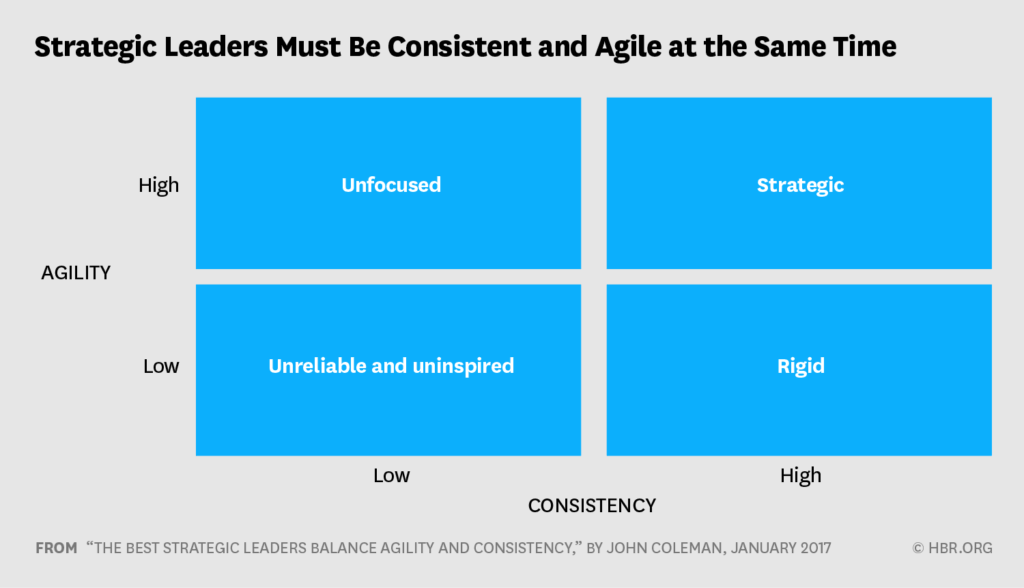Let’s make sure we’re clear about the basics – my wife is smarter than me, more gracious than me, a better lateral thinker than me, sweeter than me, and far more forgiving than me. So why shouldn’t I learn all my lessons from her? Right?
But this one particular lesson caught my attention this last week as I heard her make an announcement. She told our 12 and 10 year olds that, “On Monday I’m taking you to Disneyland…if you get your writing homework done this weekend.”
No joke – this weekend I watched my 12 year old daughter work and re-work an essay four times before it was right. Four times! On the weekend!
I also watched my son work for several hours on a Sunday, so he could have fun on a Monday.
Had I paid attention to this article on consistency and agility in HBR, I could have given my wife the idea. Instead, she taught me the lesson.
Leaders need to be consistent and agile in equal parts
Here’s the image from the HBR article – a two-by-two matrix (which I love).

If my wife let the kids skip school all the time, the lack of consistency would make her pretty unreliable. And the kids would rarely get their work done.
But the problem most of us have isn’t a total lack of consistency. The problem we have is that we start falling in love with being consistent. So consistently in love with our consistency, that we become inflexible. And the results can be painful – as we miss out on wonderful opportunities simply because it doesn’t fall in line with how we expect it.
Skipping school all the time, from an agility perspective, might initially make her really popular with our kids – because they hate to focus on school. But in the long run we’d struggle because of their inability to focus and persevere.
So what did she do? She chose a strategic moment when there was no after school musical theater practice, no leadership, no writing, none of the big classes – and decided to use our Disneyland passes one last time before they expired.
As a result, they were motivated to get their work done in advance so they could join her.
Of course the lesson applies to my daily work and your and my role as leaders as much as it applies to my family.
We need to be agile so that we can pivot or change our minds when we get new information.
We need to be agile so we can make the most from new constraints imposed on us.
We need to be agile so we can be creative when we need to respond to competitors.
We need to be consistent so that we’re predictable and not changing our minds constantly.
We need to be consistent in order to focus on what’s important and not merely what’s urgent.
We need to be consistent so we limit the stress we introduce into systems that thrive without it.
We need to be consistent and agile. And when we are, we will likely experience high motivation, and high engagement.
And who doesn’t want that?